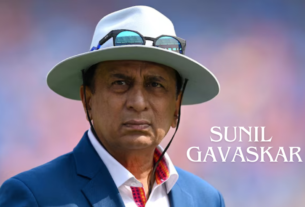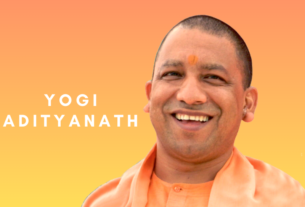Sonia Gandhi is one of the most significant political figures in India today, although her path to power was neither easy nor expected. Born in Italy in 1946, she was thrust into the world’s largest democracy and its politics through her marriage to Rajiv Gandhi, the late Prime Minister of India. Sonia’s success story is not one of immediate prominence but a tale of evolution, resilience, and an unwavering commitment to serving the country that she came to call home. Her journey from being a foreign-born bride to becoming the longest-serving president of the Indian National Congress (INC) is nothing short of extraordinary.
Early Life and Marriage to Rajiv Gandhi
Sonia Gandhi was born as Sonia Maino in the small town of Lusiana, Italy, in 1946. She grew up in a simple, middle-class family in the town of Orbassano, near Turin. Sonia’s early life was marked by a love for academics and a passion for languages, and she went on to study English at the University of Cambridge. It was during her time at Cambridge that she met Rajiv Gandhi, who was studying engineering in the UK. Rajiv, the eldest son of Indira Gandhi and grandson of Jawaharlal Nehru, was drawn to Sonia’s charm and simplicity.
In 1968, Sonia and Rajiv married, and soon after, Sonia moved to India to start a family with him. Despite her initial reluctance to step into the political spotlight, Sonia’s life took a dramatic turn after Rajiv Gandhi became the Prime Minister of India in 1984, following the assassination of his mother, Indira Gandhi. Sonia was thrust into the limelight, though she preferred a quieter, private life as a homemaker and mother.
Overcoming Challenges and Loss
Sonia’s life as the wife of the Prime Minister was not without its personal trials. The sudden assassination of Rajiv Gandhi in 1991, while he was campaigning for the Congress party in Tamil Nadu, left Sonia devastated. She was not only a widow but also had to deal with the complexities of public life in the face of immense grief and responsibility. At the time, many expected her to retreat from politics and focus solely on raising her children, Rahul and Priyanka.
However, Sonia Gandhi’s journey took an unexpected turn when, in the mid-1990s, she became more involved in the affairs of the Congress Party. The party was struggling in the aftermath of Rajiv’s death, and under the leadership of weaker figures, it had lost much of its influence. In 1997, Sonia Gandhi was elected as the President of the Indian National Congress, a position that marked the beginning of her political career. Despite her initial hesitation, Sonia took on this mantle, driven by a sense of responsibility and a desire to steer the party back to its former glory.
Leading the Congress Party
Sonia Gandhi’s leadership was met with skepticism, especially considering her foreign origin. Critics questioned her ability to lead the party and whether an outsider could truly understand the complexities of Indian politics. Despite these challenges, Sonia proved to be a tenacious leader with a vision for the future of the Congress Party.
Her first major political test came in 1999, when the Congress faced off against the Bharatiya Janata Party (BJP) in the national elections. Though Congress did not emerge victorious, Sonia’s leadership was instrumental in keeping the party afloat and reenergizing its core support base. In 2004, the party faced another significant test when the elections brought the Congress back to power, largely due to her tireless efforts.
Sonia’s role in the 2004 elections was pivotal. She led the Congress-led United Progressive Alliance (UPA) to a surprise victory, defeating the incumbent BJP-led National Democratic Alliance (NDA). Sonia’s leadership in coalition-building and her ability to bring together disparate political groups earned her accolades. Her humility, coupled with her keen political instincts, made her a key figure in national politics.
A Moment of Sacrifice
After the 2004 victory, Sonia Gandhi became the natural choice for the post of Prime Minister. However, in a surprising and selfless move, Sonia declined the position, citing her foreign roots and the desire to avoid controversy. Instead, she nominated Dr. Manmohan Singh, a respected economist, as the Prime Minister, while retaining the position of the Chairperson of the UPA. This move demonstrated Sonia’s commitment to the welfare of the country over personal ambition, a rare quality in the cutthroat world of politics.
Her decision to step back from the Prime Ministerial race endeared her to many. She continued to play an active role in shaping policies, especially those aimed at poverty alleviation, rural development, and social welfare programs. The UPA government implemented key reforms during her tenure, including the Right to Information Act, National Rural Employment Guarantee Act, and National Food Security Act.
Expanding Influence and International Recognition
Sonia Gandhi’s political journey continued to gain momentum. She was re-elected as the President of the Congress Party multiple times, solidifying her position as a key figure in Indian politics. Her influence extended beyond national borders, with numerous world leaders recognizing her role in shaping India’s future. Sonia became an international symbol of political leadership, particularly for women in politics, showing that one does not need to be born in India to lead it effectively.
Her success story is not just about her political achievements but also about her ability to manage internal party conflicts, maintain unity among allies, and keep the Congress relevant in the rapidly changing political climate. Under her leadership, the Congress managed to secure a remarkable win in the 2009 general elections, although the subsequent years saw the party struggling to maintain its dominance due to various internal and external factors, including allegations of corruption.
Facing Criticism and Defending Her Legacy
Sonia Gandhi has not been immune to criticism. She has often been labeled as an ineffective leader, with some accusing her of being a puppet-master from behind the scenes while Dr. Manmohan Singh held the office of Prime Minister. Her foreign origin was another point of contention for her critics, who claimed that she lacked the cultural roots necessary to understand the pulse of the Indian people. Furthermore, the Congress party faced accusations of corruption scandals during her tenure, which damaged the party’s reputation.
Nevertheless, Sonia’s ability to weather these storms and her unwavering commitment to the Congress party have ensured her continued relevance in Indian politics. Her leadership remains one of the defining aspects of the modern Congress era, and her influence on Indian political dynamics cannot be understated.
Sonia Gandhi’s Legacy
Sonia Gandhi’s journey is a testament to resilience, determination, and unwavering leadership. Despite the hurdles she faced, both personal and political, she has cemented her place in India’s political history. Her journey is a story of transformation—from a foreigner to a formidable political leader who rose above challenges to lead a major political party in the world’s largest democracy.
Her success story is an example of how one can thrive in the face of adversity and how selflessness, humility, and hard work can bring about significant change. Today, Sonia Gandhi continues to be a guiding force for the Congress Party, and her legacy remains an inspiring chapter in the history of Indian politics.





